“Consider the subtleness of the sea; how its most dreaded creatures glide under water, unapparent for the most part, and treacherously hidden beneath the loveliest tints of azure.”
-Herman Melville, Moby Dick
Los Angeles is vast. Its freeways snake into and through each distinct neighborhood, separated by geography and traffic. As someone who lives in Hancock Park, the ocean seems elusive at times—or at best, a 45-minute journey spent confined in my car. I forget how essential it is—how the mere sight of its waters and the smell of its salty air baptize your being so you can decompress and revitalize; like you can finally breathe in this city of smog. So when you are asked if you would “fancy a cup of tea on the beach,” the answer should always be a resounding yes. Grab the impulse and drive westward, park your car, and walk to the end of the pier toward the horizon over the rippling water; don’t think, just go.
And that’s exactly what I did on a foggy, mid-June, Friday morning. As I walked on the Manhattan Beach Pier, Johnnie Mundell—a Scotch ambassador at Beam Suntory—rolls past on a longboard as I approach the café that shares a wall with an aquarium. “Gia?” he asks, his Scottish accent clear and warm. I laugh because this feels apropos for how the morning was planned. Of course this is how we meet. We shake hands—two people raised on a western coast—one from Scotland, one from California.
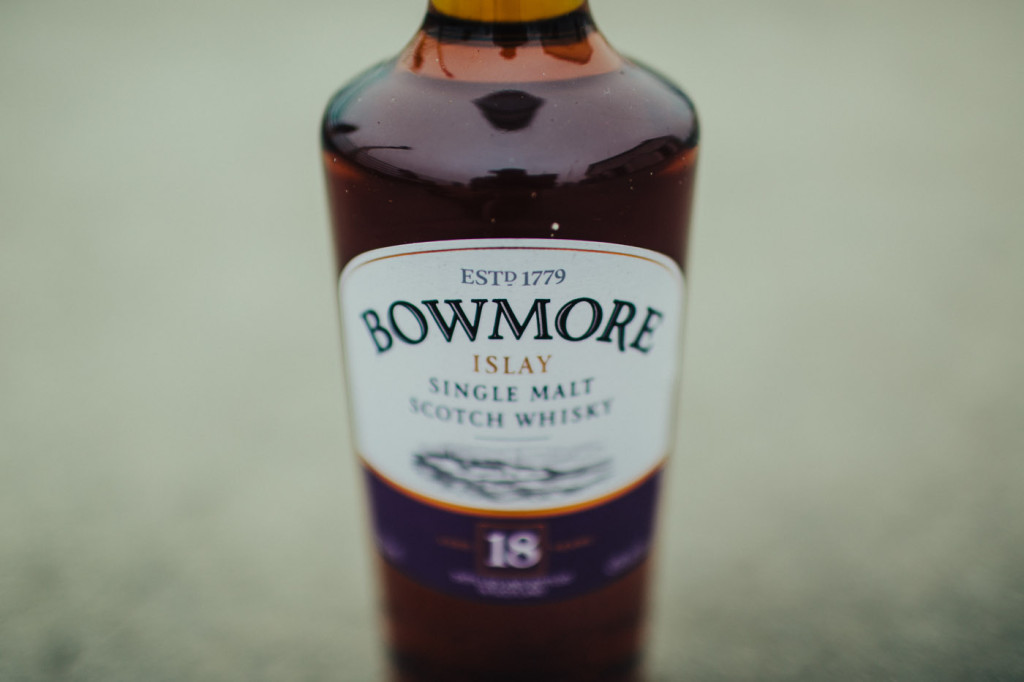
Johnnie Mundell’s Drink of Choice
Picking one is like picking a favorite child. Bowmore 18 Year, neat, was the whiskey we drank as my third daughter was born. We drank it with the doctor.
Bowmore 18 Years Old Single Malt Scotch – Neat
We each grab a coffee from the café window and round the corner past a life-size replica of a shark and post up next to the weathered wooden rail. Mundell and his family have a long history in single-malt scotch (he has ties in transporting scotch through the Kennacraig Ferry on Islay, a property his family used to own); but in a way, it still chose him. However, Mundell eventually made his way from Scotland to Los Angeles—in a way, by happenstance—to work in the business of whiskey. “These things don’t happen on purpose. It’s these things that happen on accident that you see and think feels really right,” he explains. “My journey to getting here is a series of those experiences.” His family took his father to New York for his sixtieth birthday, and Mundell decided he was staying.
“I arranged a lift in a minivan to Sundance, and then from there I found a lift that brought me here and dropped me at my uncle’s house, and they offered me an invite to their Super Bowl Party,” he says with a smile stretching across his face. “They sent a girl to pick me up at the Super Bowl party; she’s the mother of my three kids.”
“Having the gut feeling to go with it has been so influential in what I’ve done,” he continues, swearing his wife would tell their story better. Mundell uses these seemingly fated experiences to relate to those he’s teaching, whether he’s training bartenders in a master class, pairing oysters with whiskey (a tasting event he organizes where you pair the saltiness of the oyster with the sweetness of scotch), or sharing scotch and poetry with a community of people. At the end of the day, Mundell is most consumed by how one forms community filled with memorable experiences.
“L.A. is potentially one of the loneliest cities in the world,” he says. “But there’s not one L.A.” Since moving to Los Angeles (he resides in Hermosa Beach), Mundell has found and formed community that is, “integral to my life, equally as the beach is to me and this feeling of space,” he says as he points where the ocean meets the grey sky. “We’re in a city of 20 million people and I need this because that’s where I come from.” That’s the thing about Mundell: he makes you pause and think about where you are in that moment in time—not just in terms of location, but internally as well.
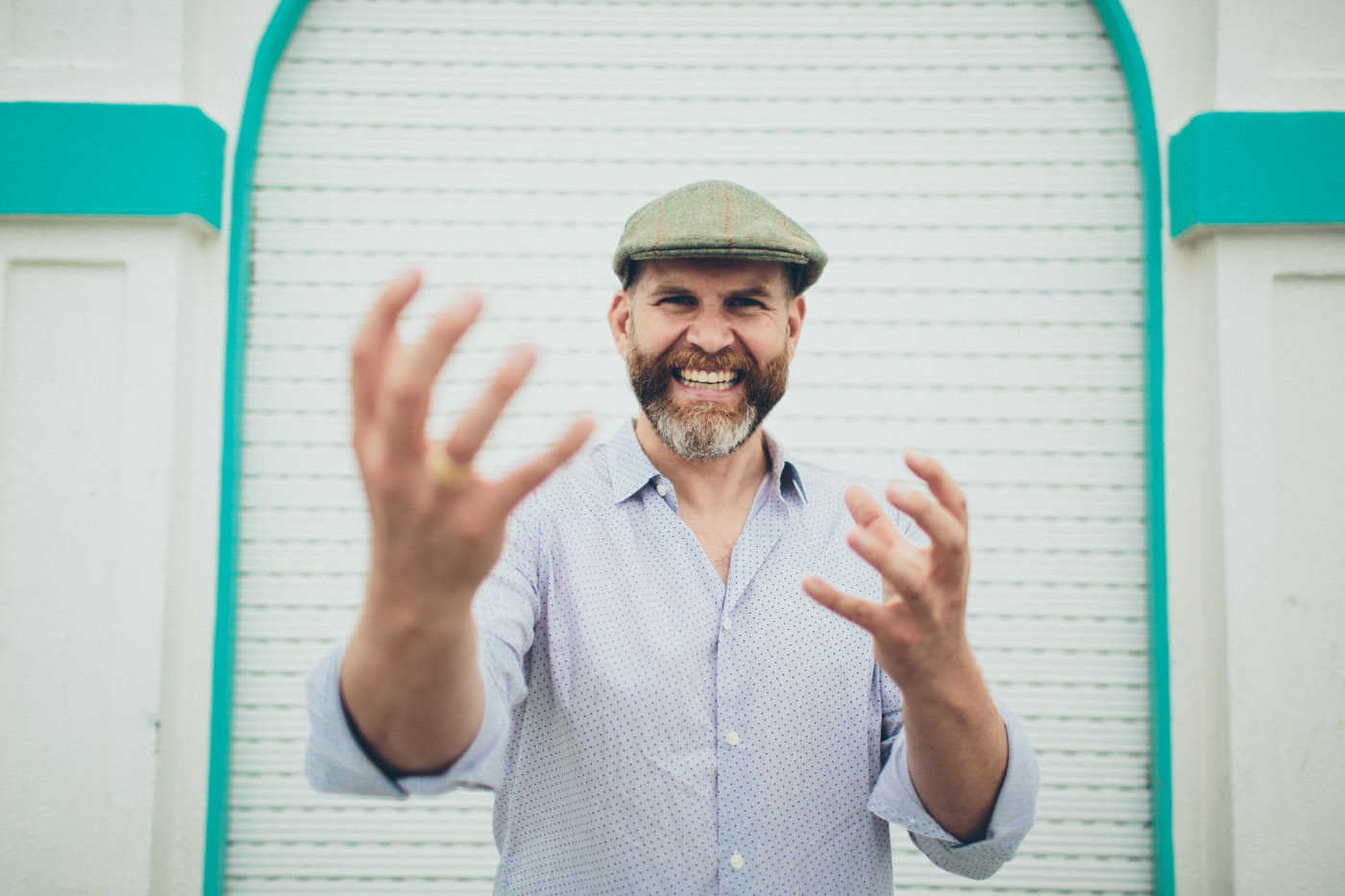
Moments later, a baby great white shark is seen swimming under the pier. “They don’t bother anyone when they’re that size,” Mundell says, seemingly unfazed. We exchange stories of our experiences with these creatures and he comes alive telling me about when a friend told him he unknowingly swam next to one. I found myself telling him of a time I swam with whale sharks (they’re technically not actual sharks, I know) in Baja California. Mundell is full of stories, and suddenly you’re swept away in the exchange of these shared—yet separate—experiences.
This engaging personality trait is incorporated into his teaching style as a scotch ambassador. “I was worried about how you stand out from the scotch guys,” Mundell confesses. How do you build relationships with key members in the bar community? “I had to take a different approach,” than just sharing a brand’s three selling points, he tells me.
Unlike most other scotch ambassadors, Mundell has always worked with a minimum of three to six brands at a time. “I’m used to creating a story that transcended all the brands, and it became category education,” he explains, rather than brand rhetoric. He’d rather facilitate conversation, whether in an event or training, than recite facts. And in weighing everyone’s various preferred learning styles—I learn by doing—he created classes that got everyone involved.
For example, Mundell uses a giant geographic map of Scotland to teach classes about where scotch comes from. He’ll have his class sit cross-legged around the map and Mundell will teach them about the geography of the land and the regionality—where the distiller comes from, his heritage, and how that creates movement in tandem with the landscape and taxation. He’s delves into each element, providing context, of scotch production.
“A lot of our strength comes from some of our weakness. I know that’s the case for me,” Mundell says when explaining his teaching style. “I can’t just learn from books; I have to learn from experience. And a lot of people like me find a home within that.”
His goal when educating is to bring a room full of people together: “It’s about bridging between those people and where their knowledge base is and allowing them to share their experience with the others in the room so everyone feels connected to where we’re going on this journey.”
With any educational event he does, Mundell seats those who arrive together separately, acknowledges the nervous energy he’s created, and then reminds everyone that each person is there to learn and celebrate the same thing: scotch. He puts them all on the same level, while also creating new connections for these people.

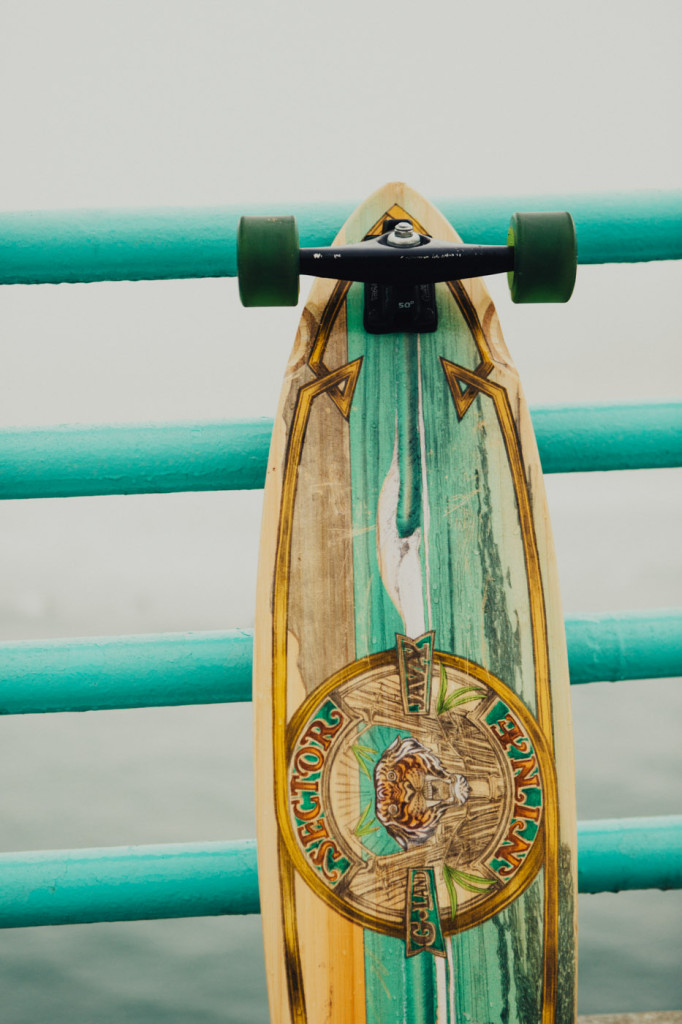

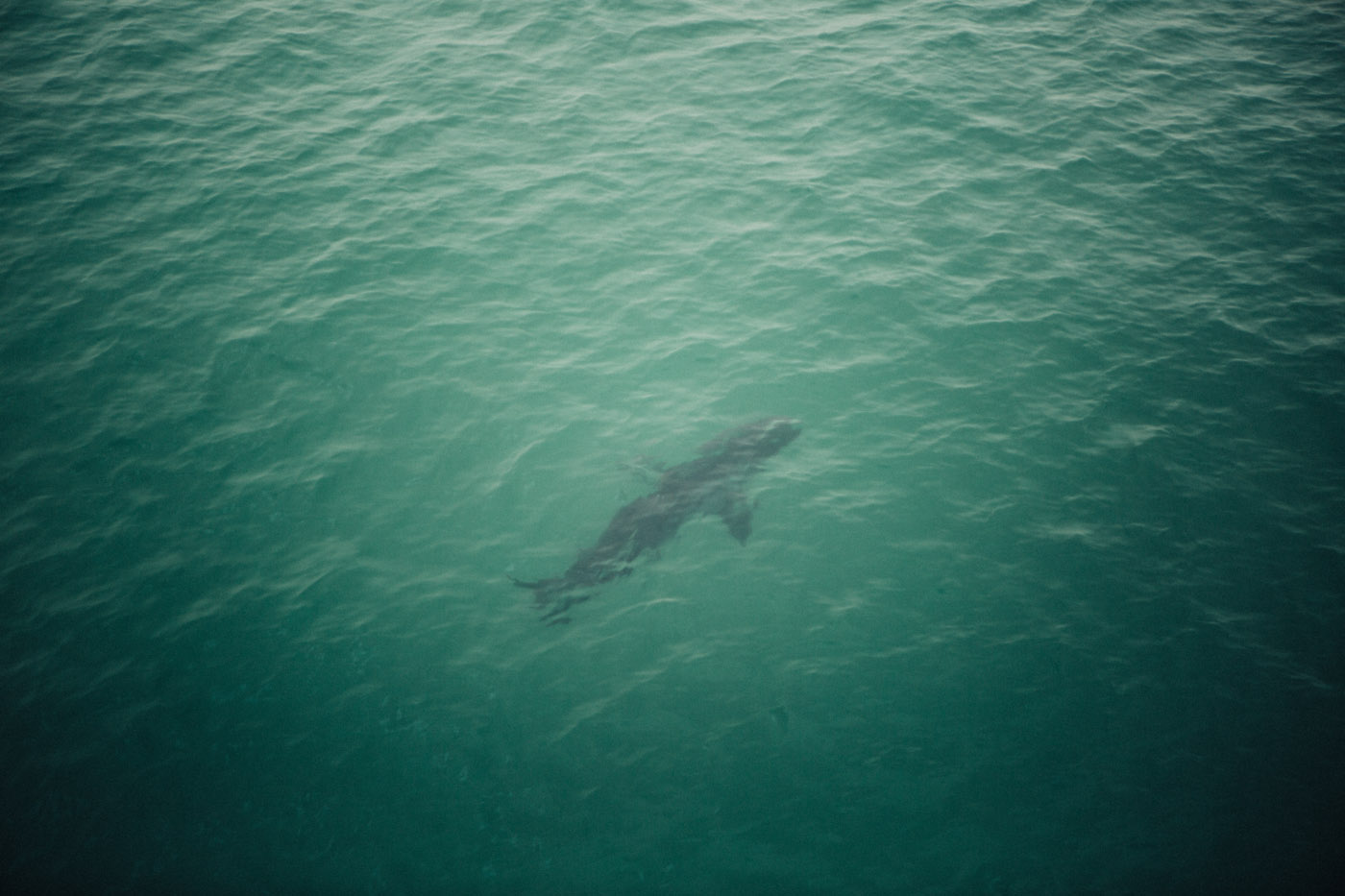
Although he is known as “Johnnie the Scot,” Mundell is currently transitioning into Japanese whiskey. “I love whiskey, and I love people. Everything else is secondary,” he says in earnest.
He explains to me: “The Scottish—we are completely focused on the tradition of what we do and recreating that whiskey. We’re also a bit thrifty and economic in our approach. Any evolution comes from that. American has this nice harmony where you’ve got the old school traditional brands and you’ve got all this new craft distillation (which fascinates me. I go to as many craft distilleries as I can find). Seeing how they’re starting out and where they’re at allows me to see where—in a different time and generation—the brands I’ve worked on have come from. They’re really the ones who are pushing and changing the business. The Japanese and what they’re doing is all about innovation and evolution; they’re constantly changing.”
I sip my coffee as Mundell explains the world of whiskey to me. I wish I could taste each side by side, for educational purposes, of course (keep in mind this is 11 a.m.). “You’ve got traditional scotch territory, and you’ve got the craft bar community. Those two are a little like oil and water; they don’t tend to mix. For me, to be able to work in this area and be the token scotch voice and also have the credibility I’ve got—and I stutter over it—with the bar community is really special,” he says with charming modesty. “We’re all struggling to create authenticity. That’s how we can do our jobs.”
He uses his own experiences to relate to others. He tells me a story of a time Jordan Felix of the Multnomah Whiskey Library (Portland, OR) is visiting a blending laboratory in Glasgow and didn’t book a hotel room. “He arrives on Friday night in Glasgow when Bruce Springsteen is playing,” Mundell laughs. Needless to say, getting a room was impossible. Mundell, who’s eating lunch in Hancock Park, gets a call to see if his parents can help Felix. Mundell’s parents take Felix in, house him, make him food, and his dad accompanies him when visiting the master blender. Mundell was able to create a memorable experience for Felix associated with scotch—one they will both carry with them. “What can we do to go beyond to create an experience?” he asks. “Anyone can read all the brand notes. It’s seeing those little intangibles to help make a deeper connection. It’s not just about the facts; it’s about the emotional attachment.”
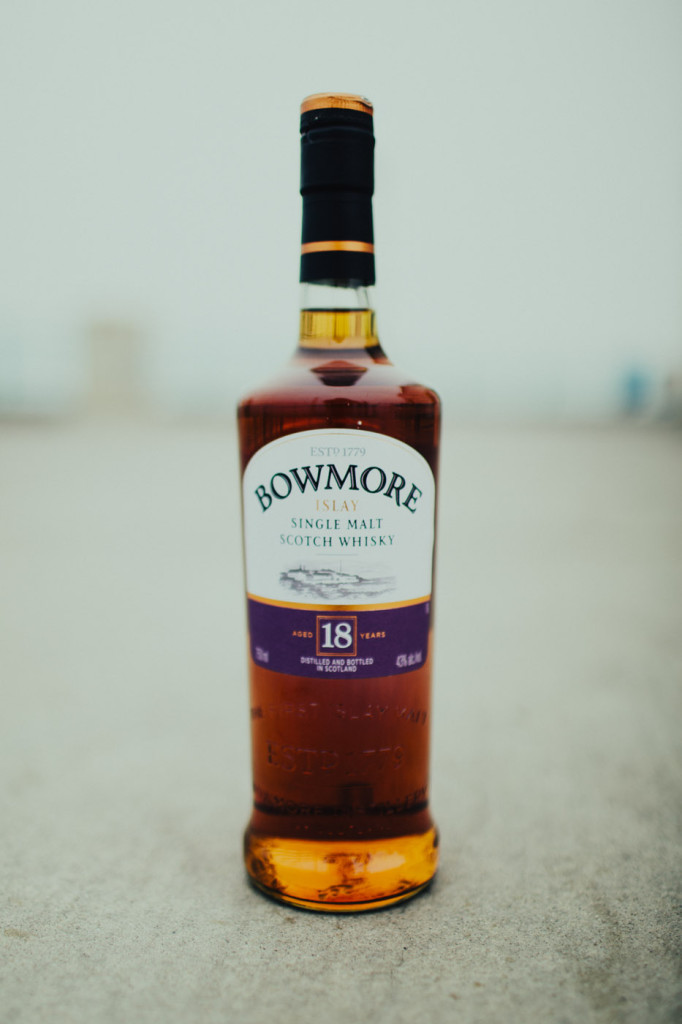

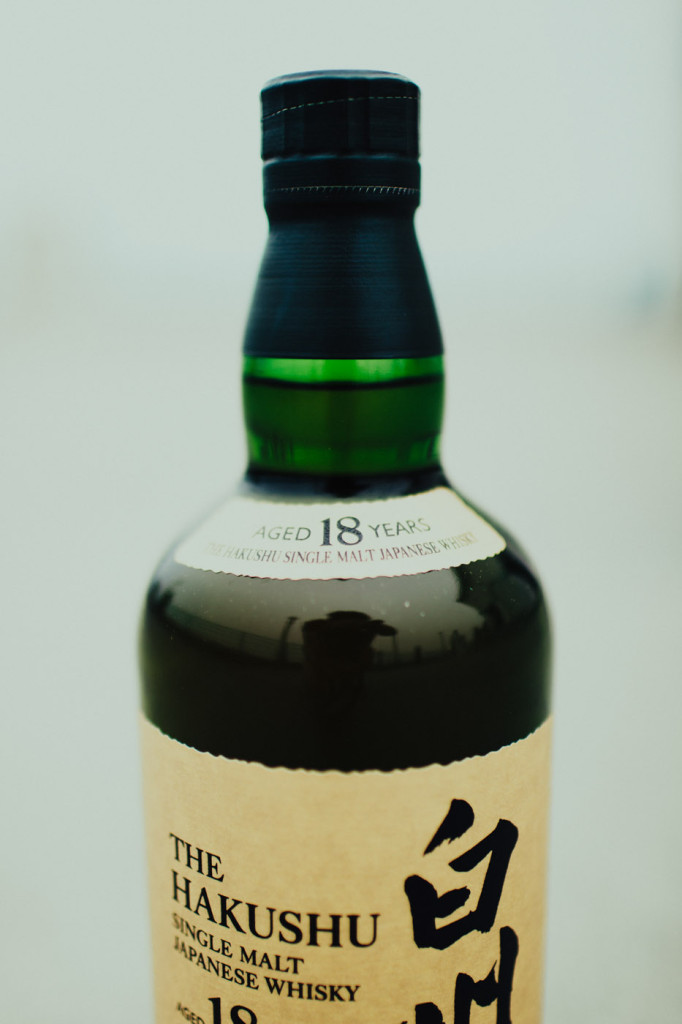
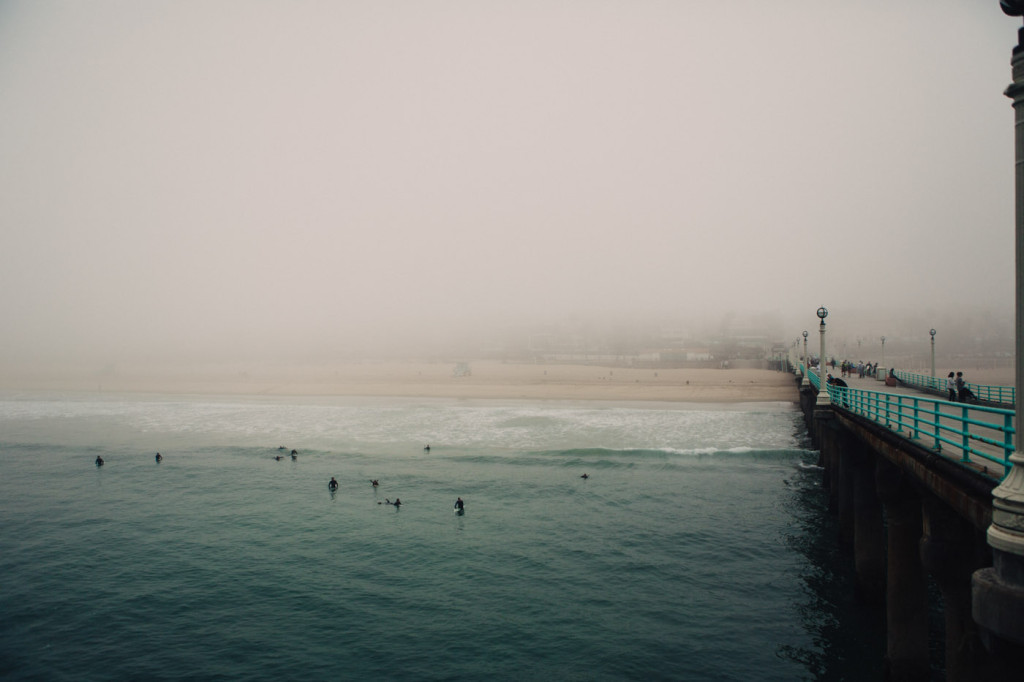
“Everything comes down to community,” says Mundell. Whiskey is just the catalyst to get everyone together. Mundell is also known for his involvement in Whiskey and Poetry, a candlelit salon based in the Huron Substation near Dodger Stadium. Mundell provides the scotch and its brief history; and Kim Ohanneson organizes the poets. This event was born out of Mundell’s boredom with giving away free samples of whiskey. In classic Mundell fashion, he thought about what he could exchange for whiskey that would also stick with the attendee.
Whiskey and Poetry started as an oyster-pairing event at Seven Grand where the cost of attendance was one poem—one you wrote or one that spoke to you; both types of poems are encouraged. “Everybody secretly wants to or is very afraid of public speaking,” he explains. “I wanted to create an environment where people who were nervous about it were safe to do so.”
When people arrived at the event, Mundell explained, “I’m going to trade your words for my whiskey.” At the end of the event there were people who hadn’t recited a poem, so he asked how many people wanted to share and 15 people put their hands up. “They went through the process of, ‘I don’t want to do this,’ to, ‘It’s over. I really should’ve done that.’” And they were given that second chance to face their fear. I wonder what I would share. In that moment sitting on the pier, “The Ocean” by Nathaniel Hawthorne seems fitting: The Ocean has its silent caves, / Deep, quiet, and alone; / Though there be fury on the waves, / Beneath them there is none. / The awful spirits of the deep / Hold their communion there…
During Whiskey and Poetry, a common question Mundell asks is, “What’s your name? And what’s your most memorable childhood toy?” Much like separating those who arrive together for his classes—he does this for the poetry events as well—the latter question puts everyone on the same level. He explains, “If you tell me your name and your most memorable childhood toy, and you recite a poem, I feel like I know you.”
11:30 a.m. arrives and Mundell has to leave to go to his daughter’s magic class. I don’t ask questions; it all makes sense. Mundell comes and goes and leaves an impression on you that you’ll think about for time to come. He’s a man of passion for the exploration of human nature and connection. If there’s a story there, he will find it. And if not, he’ll help you create one.

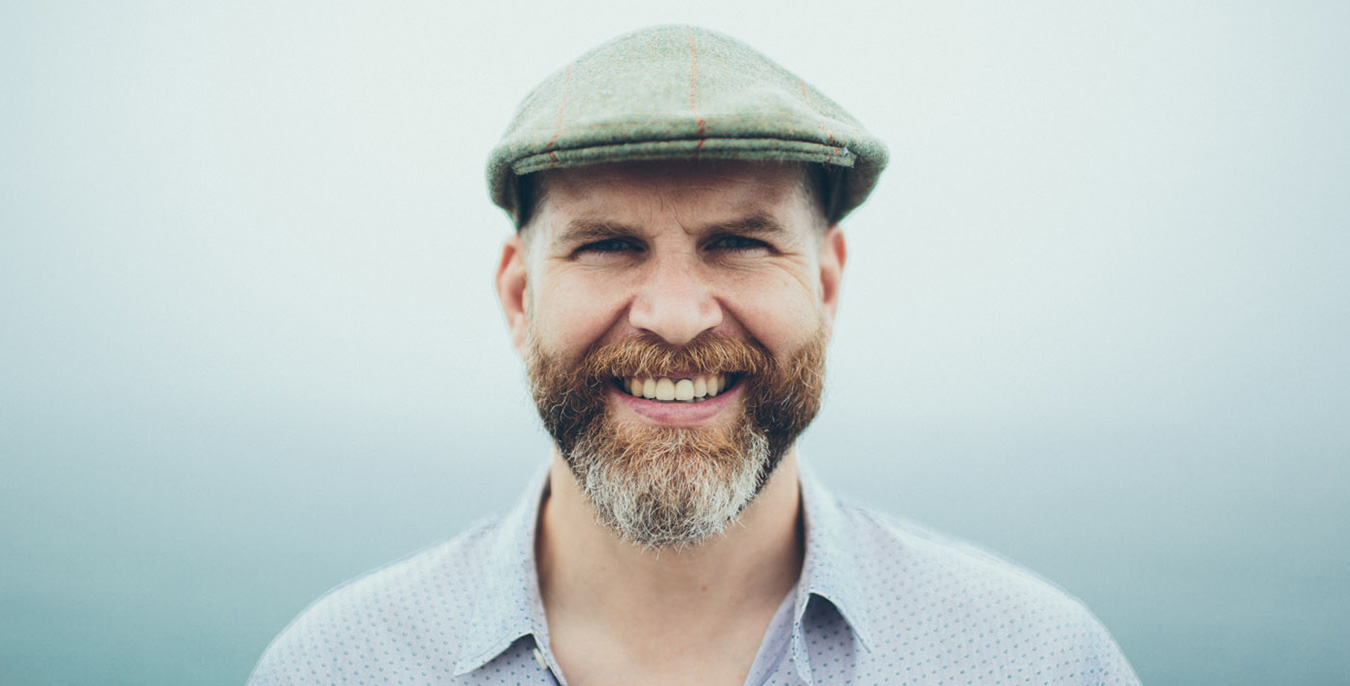

Our comments section is for members only.
Join today to gain exclusive access.